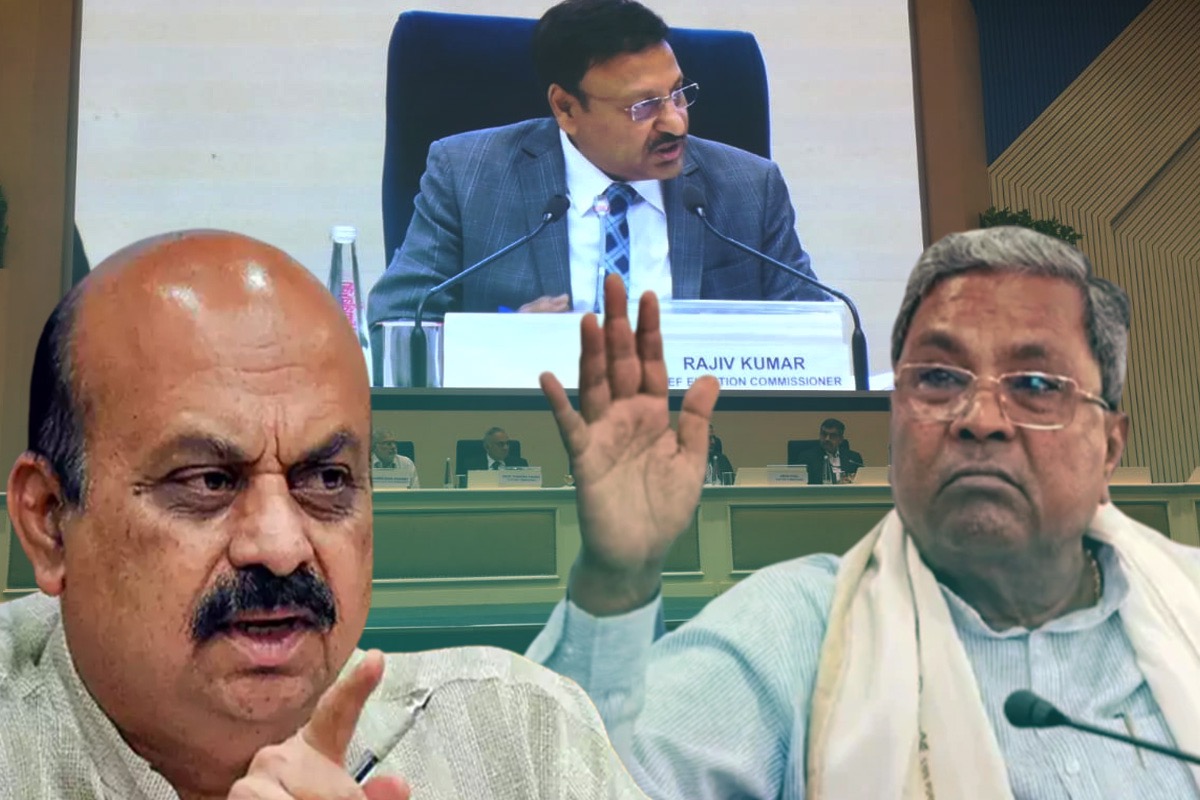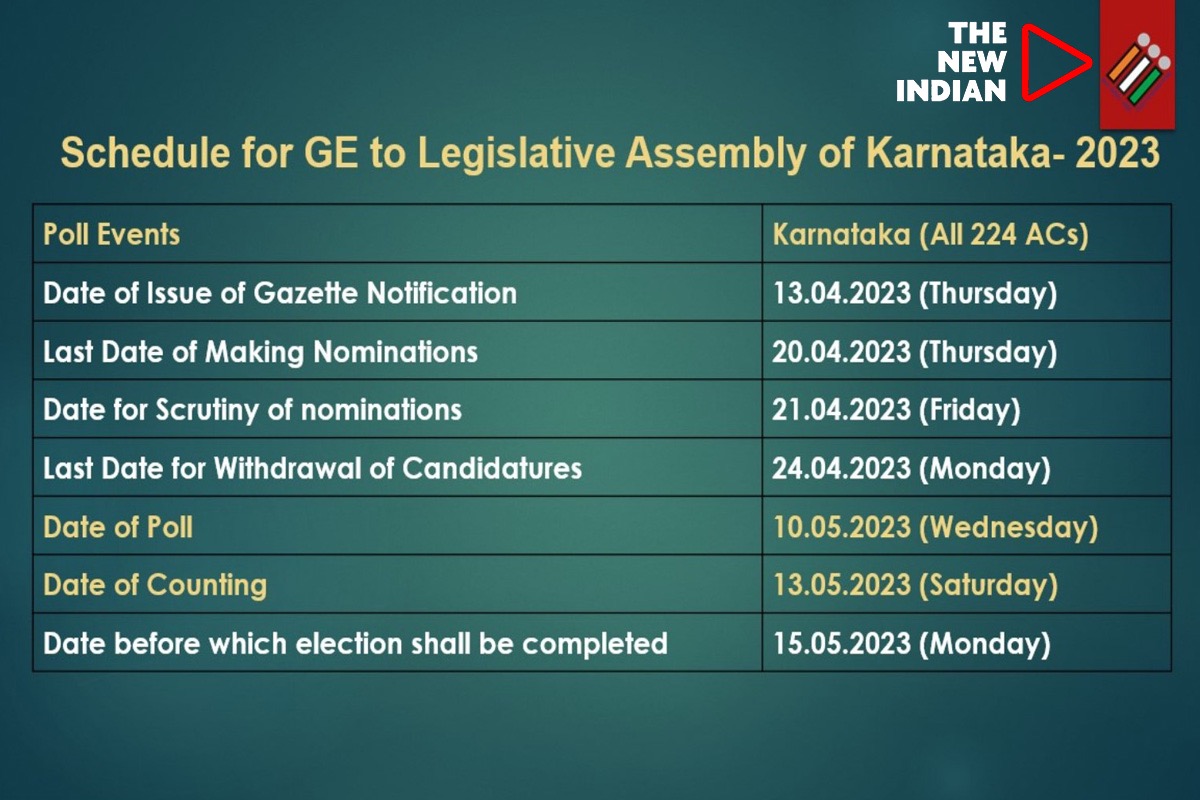The Karnataka Assembly elections will take place on May 10th and the results will be declared on May 13th, the the Election Commission of India announced on Wednesday.
The current term of the 224-member Karnataka Assembly is set to end on May 25th.
As per the electoral roll published, over 5.21 crore electors are registered, out of which 5.55 lakh are PwD (Person with Disability) electors, said Chief Election Commissioner Rajiv Kumar.
“Over 9.17 lakh first-time voters to participate in the elections in Karnataka. Also under Advance Application Facility, over 1.25 lakh applications were received from 17 years+ youth, out of which around 41,000 applications received from youth turning 18 years by April 1st, 2023”, informed Kumar.
Currently, the 224-seat-strong Karnataka Assembly has 119 MLAs from the BJP, 75 from Congress, and 28 from its ally JD(S).
On Saturday, the Congress party released its first list of 124 candidates for the Karnataka Assembly elections. The list includes former chief minister Siddaramaiah, who will contest from the Varuna constituency in Mysuru, replacing his son and sitting MLA Yathindra. Karnataka Congress chief D K Shivakumar will be fielded from the Kanakapura assembly constituency.
Meanwhile, Janata Dal-Secular, another major player in the southern state, has also announced the names of candidates for 93 constituencies. Former Karnataka chief minister HD Kumaraswamy on Tuesday announced that the JD-S government would provide a 50 per cent subsidy on cooking gas cylinders if it is voted to power.
The BJP has set a target of winning at least 150 of the total 224 seats in the Assembly that will go for polls in May. The Congress and the JD(S) have also announced their first lists of 124 and 93 candidates respectively.
The Basavaraj Bommai-led Karnataka government recently announced two new categories for reservation in jobs and education, which could become a deciding election issue in the state. Chief Minister Bommai also scrapped the 4 percent quota reserved for Other Backward Classes (OBC) Muslims. The 4 per cent reservation will now be distributed equally between the Vokkaliga and Lingayat communities.










